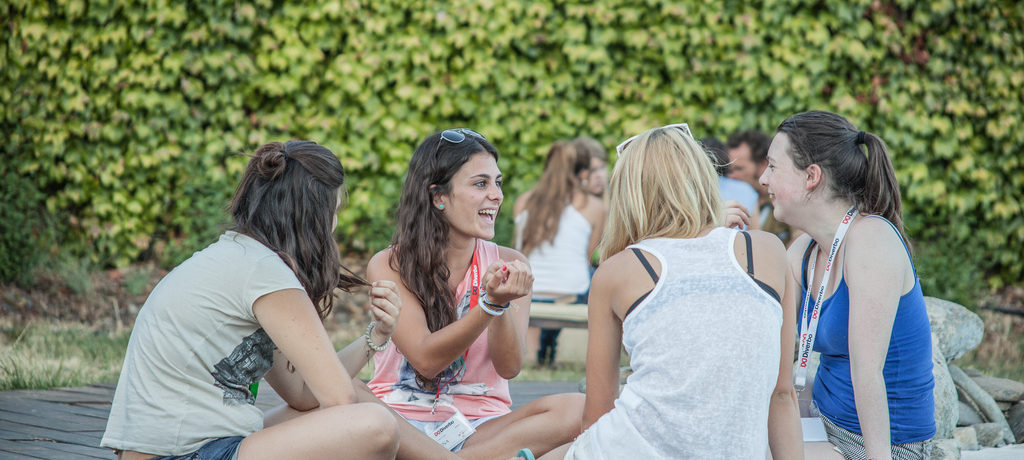Peer Pressure Can Affect Teen Development
We often think of peer pressure as a negative occurrence, but it doesn’t have to be. Inevitably, teenagers want to feel liked and included, and their social circles will play a role in dictating their behavior—and ultimately their values. That’s why it’s so important that teens have positive and supportive social circles, but what that looks like may not be what their parents envision. For a teenager, their most important relationships are their friendships. What if their friends don’t seem to share the same values as their family?
Peer pressure can be helpful on many levels. It doesn’t go away when we become adults, even though we often think of peer pressure as solely a childhood stressor. Having peer pressure as a child and teen helps us develop coping skills that are required as an adult. However, it can also lead people down a dangerous road. No teenager has ever made it through puberty without at least a few mistakes. These mistakes are often led by peer pressure, but remember that our mistakes are often our best teachers.
Unfortunately, peer pressure can be especially dangerous for children and teens because their brains don’t mature as quickly as their bodies. This leads to poor judgment. On the other hand, peer pressure can also be positive, such as making an otherwise unsure teen go out for a sport they end up loving. Teenagers tend to mimic their friends, which is why cliques form so solidly. Whether it’s trying alcohol or friendly competition for the best grades, the type of peer pressure a teen faces is dictated largely by who they admire and surround themselves with. In other words, parents are right to be concerned about who their child is calling their bestie.
According to Dr. Gurinder Dabhia, teenagers have brains that are only 80 percent developed. This causes them to make big errors when it comes to assessing risk. If it seems like your teenager just isn’t thinking, well they aren’t—at least not like an adult. They still have a prefrontal cortex that isn’t fully developed. Not only does this make them try risky things, but it also makes them even more susceptible to peer pressure. It’s a vicious cycle but will end soon enough. By their twenties, the brain is fully developed.
It’s very possible that an out of control teen will grow up to be a responsible adult. Think back to when you were teen, and consider how different you are now. Peer pressure in high school doesn’t permanently dictate a person’s behavior. However, it can lead to consequences that are irreversible, such as alcohol addiction or teen pregnancy. Parents are right to worry, and the best approach is to stay involved with their life. Communication should stay open at all times, and especially if a teen is entering a dangerous zone. Intervention may be necessary, and it’s always best to do so early. It’s much easier to stop an experimentation with drugs than addressing a full-blown teen addiction.
To counteract negative peer pressure, it’s a good idea to have frank conversations with your teen about risky behavior. It’s not enough to say, “Don’t drink.” Talk about the addictive qualities of alcohol and the statistics behind teen drinking. It’s important that teens are taught the consequences of their actions without having to learn them all the hard way. In some cases, extreme intervention may be necessary, such as rehab for addiction. However, in many cases, there are plenty of red flags for the aware parent. Peer pressure can’t be entirely avoided, but it can be managed and negated.
For older teenagers, it’s impossible to protect them at all times. Instead, make sure they have the tools necessary to handle key situations. Talk about what they should do if they’re offered a drink or a joint. Always be available around the clock without any repercussions. Your teen should feel comfortable calling in the middle of the night to be picked up from a party (intoxicated or not). This kind of openness will test the limits for any parent, but it’s critical for a teen’s safety.
It’s not easy to become an independent adult when surrounded by peer pressure. However, giving your child the tools and directions they need, not forcing it on them, is a parent’s best weapon to guide them towards a fruitful adulthood.
Guest post by Trevor McDonald
Tags: adolescents, behavioral health, children, Crossroads, Crossroads of Lake County, health, lake county, mental health, Mentor, peer pressure, recovery, teen development, teens, Treatment

